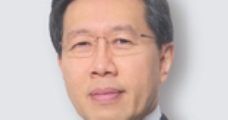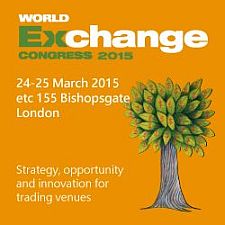Thai OTC Derivatives Market Set To Open Up To Accredited Investors

Vorapol Socatiyanurak, Thailand SEC Secretary-General -
Presently, derivatives investments for mutual funds are restricted hedging transactions up to 100% of the notional value of the underlying. The new ruling will allow mutual funds catering to accredited investors to invest in derivatives over 100% of the underlying notional for generating higher return. Accredited investors comprise institutional investors, including commercial banks as well as high net worth individual investors (with total assets of over 50 million baht).
Further, and more significantly, mutual funds – and indirectly accredited investors – will be allowed into the small and tightly regulated OTC derivatives market in Thailand, which is currently only restricted to certain financial institutions and comprises primarily of foreign exchange and interest rate derivatives, according to data by the Bank of Thailand.
According to Nopadon Nimmanpipak, assistant managing director and head of equities and derivatives trading at Phatra Securities in Bangkok, the new ruling sets the ball rolling on a reform of derivatives rules that will open up the OTC derivatives market and set the stage in the future for a local central counterparty to be established in the country.
“We still have to clear the rules at the SEC and the Stock Exchange of Thailand (SET) and establish the tax implication for investment in these kinds of products. The industry will need to develop a platform for issuers to be able to effectively offer these products to investors much before we get into the system or platform for clearing them. The SEC is working, in parallel, towards the same goal and the same clearing structure as required by international regulations,” he says.
Thailand is not directly a part of the G20, represented instead through the ASEAN which has occasionally served as a guest of the summit, and is therefore not bound to OTC reform as envisioned by the G20 in 2009 which required OTC transactions be cleared by a central counterparty and traded on an electronic platform. The SET’s cash equity clearing platform announced its compliance with the Principles of Financial Market Infrastructures (PFMI) by the Committee on Payment and Settlement Systems (CPSS), which forms the basis for OTC clearing counterparty regulation globally.
The Thai SEC did not confirm, by press time, if it plans to set up a CCP for the domestic OTC market. In a research report published in March last year by the International Swaps Dealers Association (ISDA) and consultancy Celent, a Malaysian financial firm is quoted as expecting a Southeast-Asian centric CCP serving the OTC markets of Malaysia, Thailand and Indonesia: “The location of that can also produce a lot of nationalistic issues.”
On the exchange front, an increase in mutual fund investment in derivatives should coincide with the SET’s plan to launch a 2 billion baht derivatives trading platform this year in a bid to become a regional financial hub in three years. Beginning in 2011, the SET’s strategy included joining the ASEAN link, which has already been achieved.
Figures by the Thailand Futures Exchange (TFEX) suggest that almost 57% of derivatives trading on the exchange came from local high net worth individual investors in July 2014, versus 48% by institutional investors. According to the exchange, the SEC’s ruling will increase demand for exchange-trade derivatives products by institutional investors.
“The increasing demand from AI funds should add a greater portion of investments by institutions and also enhance the mechanism of price discovery on TFEX products,” the spokesperson adds.
However, the immediate impact on liquidity in exchange-traded derivatives may not come through, according to Kawin Sangvichien, deputy managing director at Siam Commercial Securities in Bangkok. “The effect on liquidity may not be immediate as institutional investors can enter the market through OTC as well as through the offshore exchanges,” he says.
The accredited investor scheme was launched in April 2013 in order to provide fund-raising enterprises some flexibility by defining a separate class of investors that would not need to comply with the reporting and disclosure requirements and do not need the same protections by the SEC as retail investors.
Initially, accredited investors were allowed to invest, without limit, into unrated bonds and non-retail mutual funds that invest in these bonds and other non-investment grade debt instruments. According to the SEC, this move expands the range of options for some investors in Thailand. Although these investors can already invest directly to exchange-listed derivatives, this move will open up access to the OTC market for derivatives in Thailand.
Asset management companies are required to put in place a robust risk management system for risks associated with derivatives investment and disclose to investors the information on such investments. Mutual funds need to have in place know you client procedures and disclose in the factsheet about the derivatives it intends to invest in and the resultant increase in market risk. There is also a requirement for mutual funds to conduct a suitability test to ensure their investors aren’t taking too much risk.
In an emailed response, an SEC spokesperson added that asset management companies must, additionally, comply with rules governing derivatives investment which include rules on counterparty limit, reserved liquid asset requirement and investment ratio calculation in underlying assets. According to the TFEX, exchange-trade derivatives will be marked to market daily as per international practice.
According to Nimmanpipak at Phatra, the new ruling will allow for more flexibility to securities firms to offer more innovative products to clients. “High net-worth investors already have exposure to exotic products through offerings by foreign banks, so there is already some demand in the market. This is, therefore, a good development to allow us to offer these products to our clients and allow more qualified and educated investors to trade domestic derivatives,” he says.
Related Articles
Thailand Securities and Exchange Commission
-

Thai SEC to launch new schemes for cross-border securities offerings
Vorapol Socatiyanurak, Thailand SEC Secretary-General -The SEC will issue the >>
Stock Exchange of Thailand (SET)
-

Thai bourse welcomes Standard Chartered Bank as the 5th settlement bank
Kesara Manchusree, President, SET -Thailand Clearing House Co., Ltd. (TCH), a >>
Thailand Securities and Exchange Commission
-

Thai SEC strives forward AFET- TFEX integration
Vorapol Socatiyanurak, Thailand SEC Secretary-General -The SEC has moved >>




